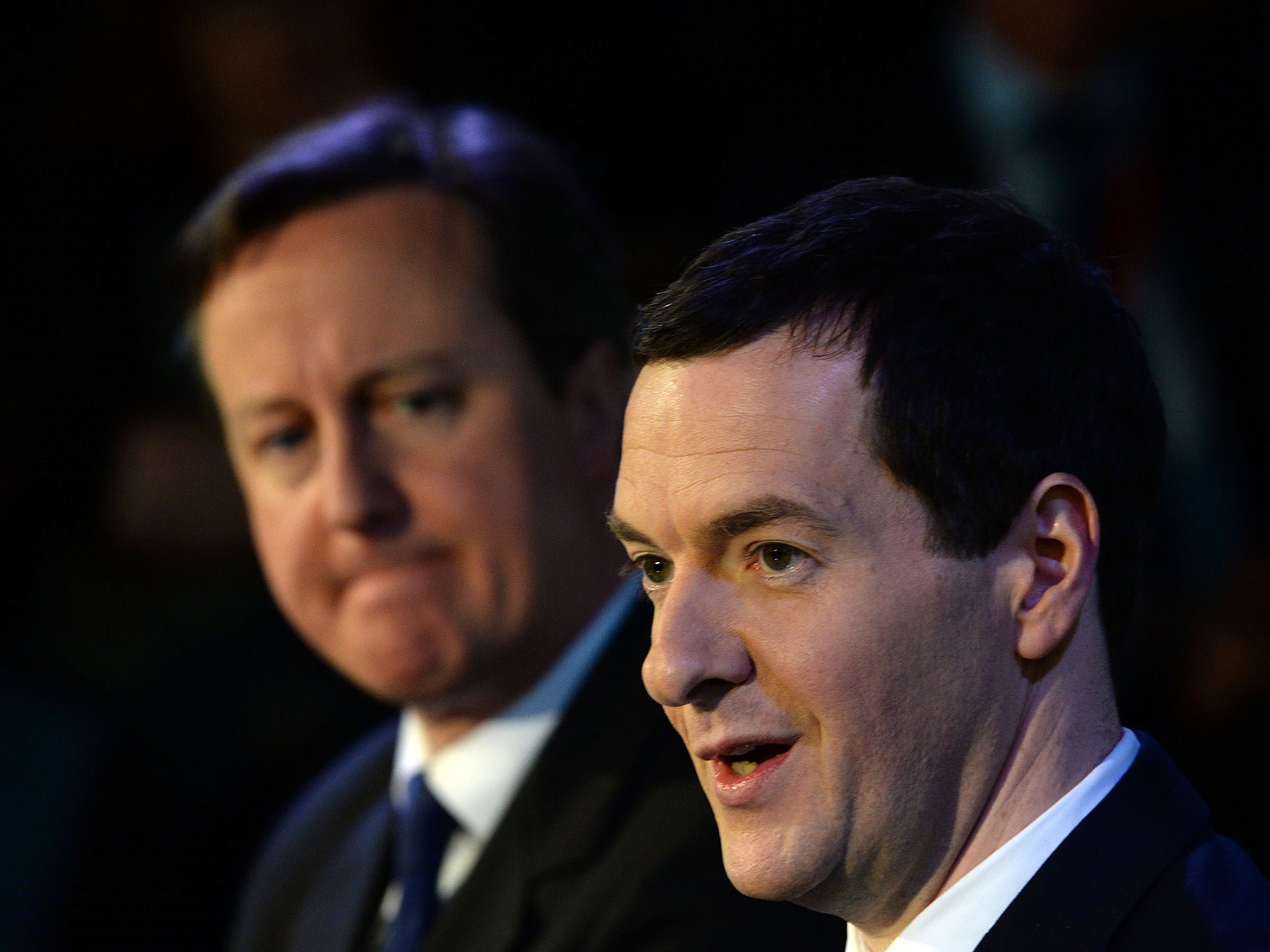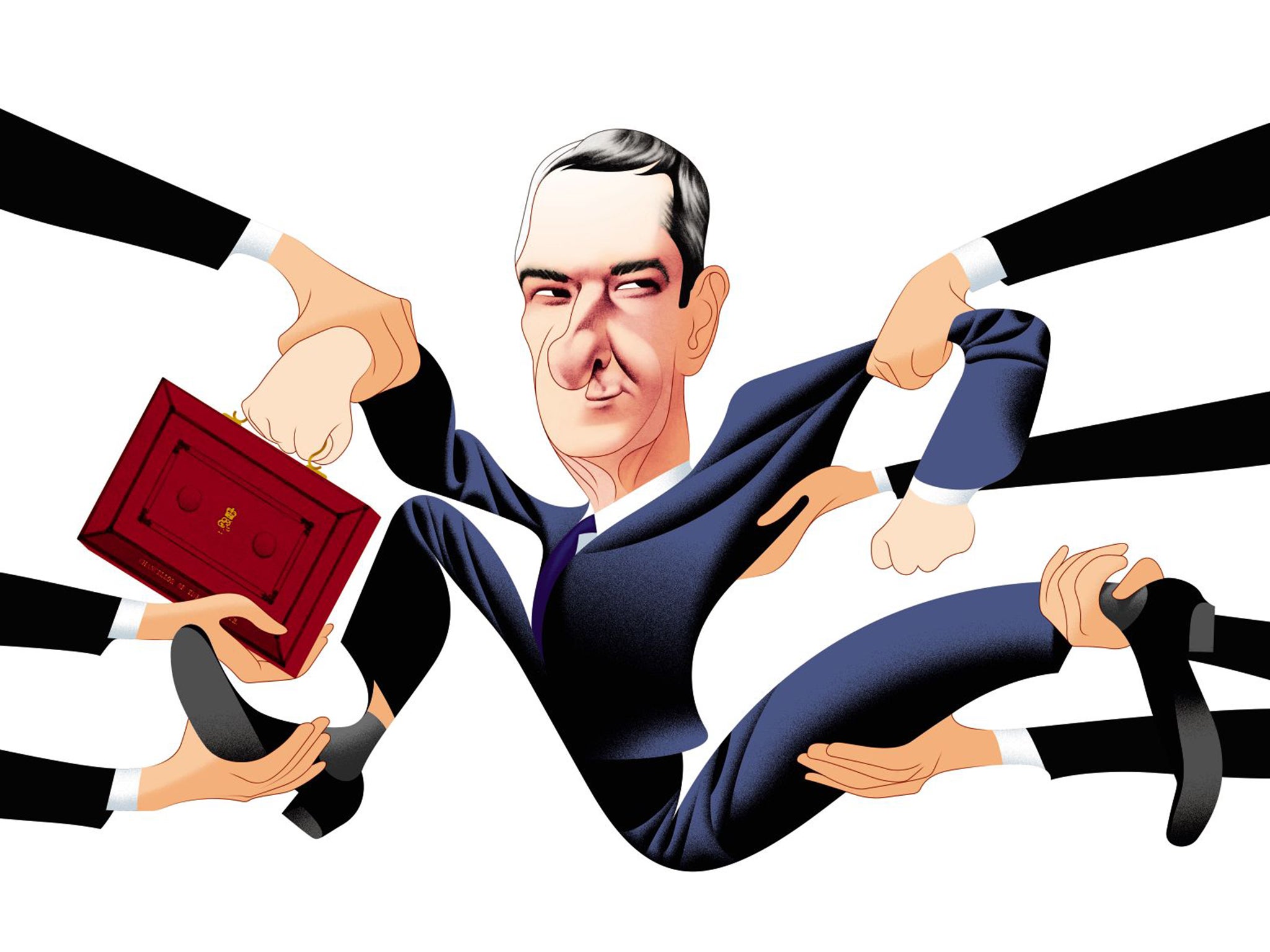George Osborne: Chancellor has five times the usual number of special advisers
The Treasury press office refused to say who they are, or how many there are, or who is on the Chancellor’s Council of Economic Advisers

Your support helps us to tell the story
From reproductive rights to climate change to Big Tech, The Independent is on the ground when the story is developing. Whether it's investigating the financials of Elon Musk's pro-Trump PAC or producing our latest documentary, 'The A Word', which shines a light on the American women fighting for reproductive rights, we know how important it is to parse out the facts from the messaging.
At such a critical moment in US history, we need reporters on the ground. Your donation allows us to keep sending journalists to speak to both sides of the story.
The Independent is trusted by Americans across the entire political spectrum. And unlike many other quality news outlets, we choose not to lock Americans out of our reporting and analysis with paywalls. We believe quality journalism should be available to everyone, paid for by those who can afford it.
Your support makes all the difference.George Osborne, the Chancellor, has been accused of building a power base at the Treasury to support his ambition to succeed David Cameron as Prime Minister. The annual list of special advisers, to be published this month, is expected to confirm that he employs 10 special advisers – political appointees paid from public funds. The normal limit for a cabinet minister is two, but Mr Osborne has been given permission by Mr Cameron to hire an extra eight.
The official list will reveal a drop in the number of special advisers employed by the Government from last year’s total of 107, because the 38 Liberal Democrat advisers have gone. The Chancellor, however, has added two to his generous allocation of seven political advisers, with a tenth, Eleanor Wolfson, believed to be on maternity leave.
The Treasury press office refused to say who the Chancellor’s special advisers are, or how many there are, or who is on the Chancellor’s Council of Economic Advisers. The council, made up of additional special advisers, was invented by Gordon Brown in 1997 as a way to bring politically committed economists into the Treasury. Enquiries were referred to the Cabinet Office, whose spokeswoman said: “The list of special advisers is published annually and it will be published in due course.”

However, The Independent on Sunday has established that the Treasury special advisers are: Thea Rogers, formerly Nick Robinson’s producer at the BBC, who is the Chancellor’s chief of staff; James Chapman, the ex-political editor of the Daily Mail, director of communications; Sue Beeby, political press officer; Simon Glasson, who handles party matters; Matt Cook, events organiser; and Lisa Buckland. In addition, three special advisers are members of the Council of Economic Advisers: Richard Davies, former economics editor of The Economist, who is Mr Osborne’s main economic adviser and chairs the council; Jennifer Donnellan, formerly of the Conservative Research Department; and Neil O’Brien, formerly of the Policy Exchange think-tank, who is credited with the Northern Powerhouse policy.
The Ministerial Code, an updated version of which was published last month, says: “With the exception of the Prime Minister, cabinet ministers may each appoint up to two special advisers.” It adds that “exceptions to this rule ... require the prior written approval of the Prime Minister”.
In opposition Mr Cameron promised to “cut the cost of politics” by reducing the number of special advisers; in 2009 he promised that in government he would limit each cabinet minister to one special adviser.
Conservative MPs point out that Mr Osborne, himself a former special adviser, has an advantage in the battle to succeed Mr Cameron, thanks to the size of his political operation. His main rival, Boris Johnson, who has a large political staff as Mayor of London, will be reduced to only two special advisers if he becomes a member of the Cabinet next year.
Special advisers, invented by Harold Wilson in 1964, are temporary civil servants paid from public funds to provide political advice. They are personal appointments of cabinet ministers (subject to prime ministerial approval) and are not bound by civil service rules on impartiality. As their numbers grew, their activities have been regulated by a Code of Practice, which includes the requirement that their salaries should be published annually. Last year, the total salary bill for the Chancellor’s special advisers was about £500,000.
Mr Osborne’s advisers came under scrutiny last week when the House of Lords voted against the Government’s plan to cut tax credits. It was suggested that one of the reasons the Chancellor had failed to see trouble ahead in his July Budget was that he had recently lost his main economic adviser, Rupert Harrison, who left in June to take a job at BlackRock, the US fund manager. His replacement, Mr Davies, did not start at the Treasury until the end of August. However, The Times reported last week that Mr Harrison had helped to devise the cuts to tax credits, and that he continued to advise the Chancellor informally in preparing the Budget.
The size of Mr Osborne’s political court is viewed enviously by supporters of rival candidates in the Conservative leadership election, which the Prime Minister has said will take place before the next general election in 2020. Under the party’s rules, Conservative MPs will vote repeatedly to produce a shortlist of two candidates, with the party members making the final decision.
But Mr Osborne still has fewer special advisers than Gordon Brown. Just before Mr Brown became Prime Minister, he had 11 special advisers: five regular advisers (some of them notionally assigned to Stephen Timms, his Chief Secretary to the Treasury) and six members of the Council of Economic Advisers.
This article was amended on 2 November to add two more special advisers who also work for the Chancellor or Greg Hands, the Chief Secretary to the Treasury: Matt Cook and Lisa Buckland.
Join our commenting forum
Join thought-provoking conversations, follow other Independent readers and see their replies
Comments